
How to {Tell}
"We tell ourselves stories in order to live..." – Joan Didion
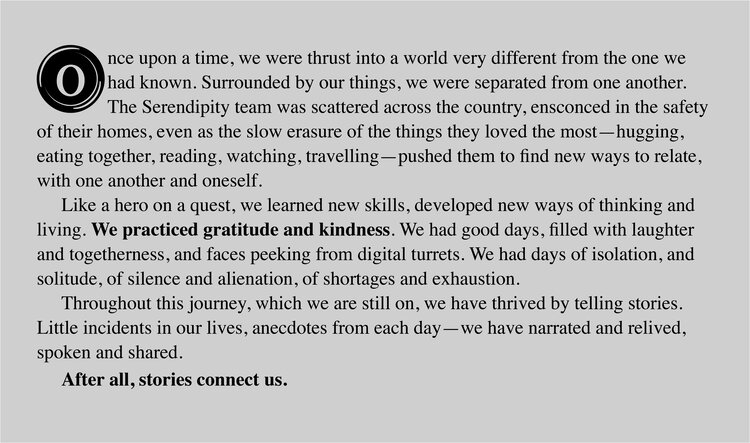
#serendipityconversations
As we increasingly rely on ourselves for sustenance, “how-to” videos, tutorials, and stories have gained prominence on the web. We extend the idea of care, sharing, and reliance that motivates these practices to the world of art, as we enter the minds, processes, and strategies used by curators, artists, and experts to bring their visions to life. Each week we approach a new “how-to”: exploring the complexities of art through approachable, close-to-life conversations.
Tell. Reveal. Discover. Experience.
A talk by Siddhant Shah from Access for ALL
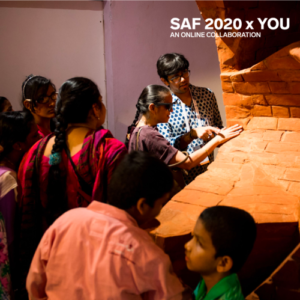
An interesting aspect of explaining art works and objects to children and those with special-needs is that it is a multi-sensory approach, as the aim is to provide information which they can fathom without being bogged down with technical word-play. The way we talk about art and objects is extremely descriptive, as we cater to varied audiences with sensory challenges encouraging us to talk about an object ‘in relation’ to or ‘with respect’ to other supplementary and complimentary contexts. Through this talk, Siddhant will uncover various approaches he takes when interpreting an object, through animated telling, visual memory banks and texture talks. He will be giving out tips and tricks for parents, teachers, and caretakers who can use them to have a vivid, colourful and experiential conversation with children. It’s not about what you tell… but it is about how you tell it!
Watch the talk on Facebook
The Music of Resistance - Reflections on Relevance and Representation in Present-Day India
A conversation between Sumangala Damodaran, Sudhanva Deshpande and Shaaz Ahmed
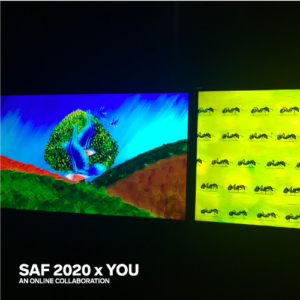
The session will address questions of how artistic practice can make sense of and represent longstanding traditions of protest music in a country like India and more broadly in South Asia. Through using the music research-design-animation collaboration between Sumangala Damodaran, Sudhanva Deshpande and Shaaz Ahmed for the ‘People’s Music’ project for the Serendipity Arts Festival, 2017 as a backdrop, the session will try to tease out how artists might look at the genre of protest music from different artistic viewpoints and why this might be relevant at all in the present context.
Watch the discussion on Facebook
Abhinaya: Sharing versus Conveying
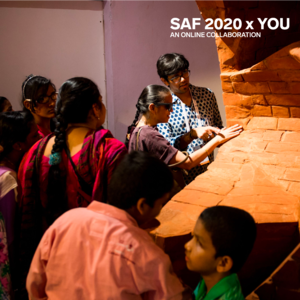
A conversation between Navtej Johar and Kiran Kumar
The conversation between Navtej Johar and Kiran Kumar will broadly touch on three aspects — the historical re-definitions of dance, and conversely abhinya, that have taken place over the last century; the somatic practice that Navtej has devised and how it might be conducive to embodying abhinaya; and viewing abhinaya as a sharing of an in-the-moment-lived-experience as opposed to an “as if” occurrence that can be self-consciously conveyed through illustrative routines of “show-and-tell”.
Watch the discussion on Facebook
Adapting for the Stage
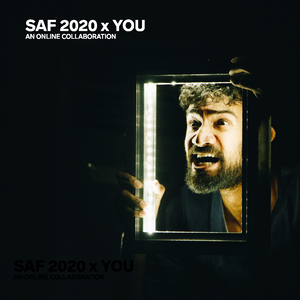
A conversation between Anmol Vellani, Rajiv Krishnan and Sharanya Ramprakash
Adapting for the stage has been narrowly understood as the act of transforming material from another artistic medium, such as poetry, fiction or cinema, into a play. A wider view would include the mining of legal cases, reportage, historical scholarship and lived reality, for example, to create dramatic texts or inspire devised theatre. Adaptations may also refer to the reshaping of plays for another context and time, or to meet the requirements of other genres of theatre, such as musicals and radio dramas (or vice versa). Three theatre practitioners – Anmol Vellani, Rajiv Krishnan and Sharanya Ramprakash – will be in conversation about why and how they have adapted for the stage. They will reference their own work to discuss the purpose, processes and challenges of theatrical adaptation.
Watch the discussion on Facebook
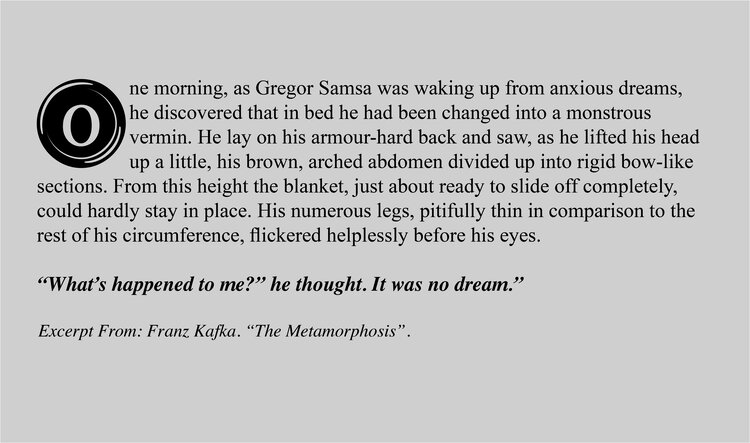
#SAFthrowback
Please Feel at Home, directed by Anmol Vellani for SAF 2019, deals with latent prejudices and preconceptions about the ‘other’.
Mondays Are Best for Flying Out of Windows, also at SAF 2018, was a play based on a collaborative approach to Russian writer Daniil Kharms’ work.
People’s Music, a collaboration between Sumangala Damodaran, Sudhanva Deshpande and Shaaz Ahmed showcased at SAF 2017, was a sound, graphic and animation installation presenting music of protest, resistance and social engagement over the last 80 or so years.
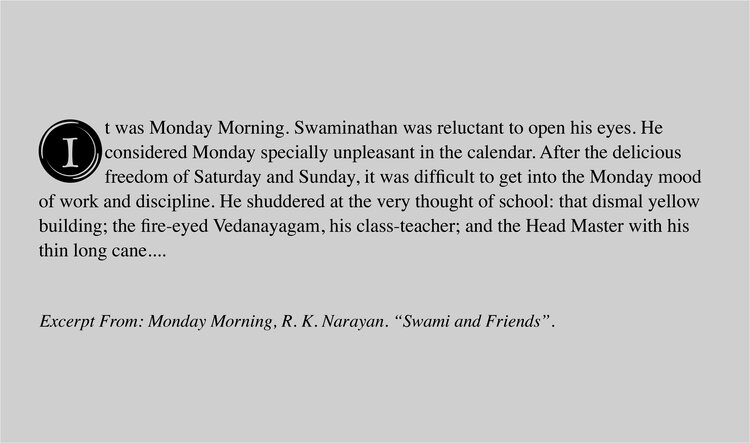
P.S. Out of the Blue
Stories are everywhere. To begin with, how about some tiny tales for the avid reader? If we listen closely, we can hear the stories the music from vinyl records tell. Puzzles perhaps are the most rewarding end to the beginning and middle. There are so many small pieces that add to the story of our lives – do you ever wonder which song topped the charts the day you were born? Did you ever want to learn the beautiful art of origami, or better understand magic? Sometimes, simply looking at the stars can be magical. Our imagination can transport us anywhere. Would you like to touch the stars, or perhaps catch hold of a plane?
Stories take us back to our childhood. Our grandmother’s words ring in our ears, and we try to retell stories from the past through our point of view. Is yours a comic one, or dramatic retelling? Either way, there are a multitude of ways to tell – through our folk traditions, our histories or even in our current times of isolation. Look, listen and retell.
Join us next week for more stories!
Adapting for the Stage
Reading and Resources Library
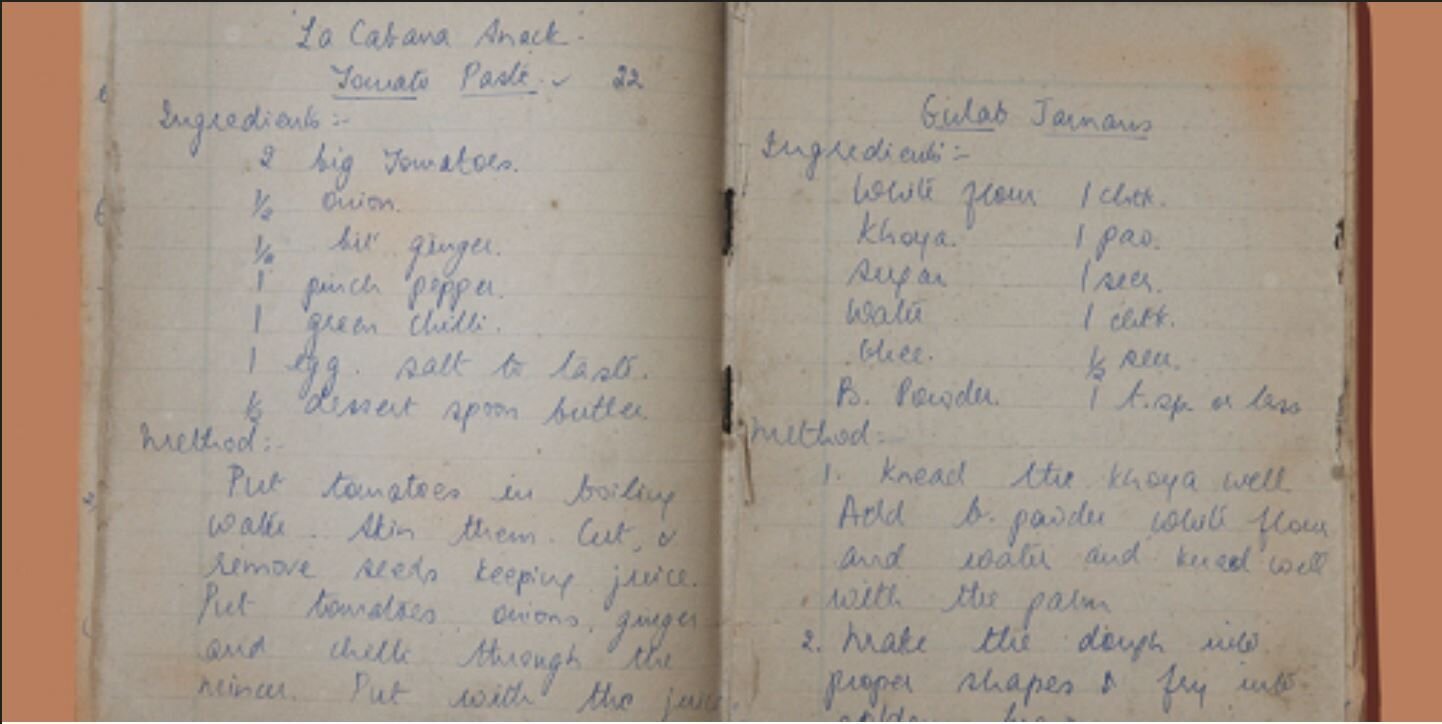
From our Archives
An excerpt from “Beyond Delicious: Talking with Food”, by Veeranganakumari Solanki published on Write | Art | Connect.
As a language food allows us the medium to grapple both with the macro and the micro, the public and the private. Even as I think about the wide variety of people the Goya Journal engages with, the disparate kitchens it travels into, I am reminded of the intimate experiences food mediates. I think of Zacharias’ grandmother and the strength food often offers for negotiating loss. It has been a while since I first saw Reena Saini Kallat’s autobiographical work, ‘Walls of the Womb’, but perhaps because it too deals with the memory of food it comes back to me in a flash.
From the Internet
This week, we bring to you a series of remedies for impaired narratology and writerly afflictions:
On Writer’s Block: Advice from 12 Writers // The Paris Review
Why Does Anyone Write by Alice Adams // LitHub
Your Memory is Fiction by Jessica Andrews // Electric Literature
What’s Needed is Magic: Writing Advice from Haruki Murakami by Emily Temple // Lithub

Serendipity Grants
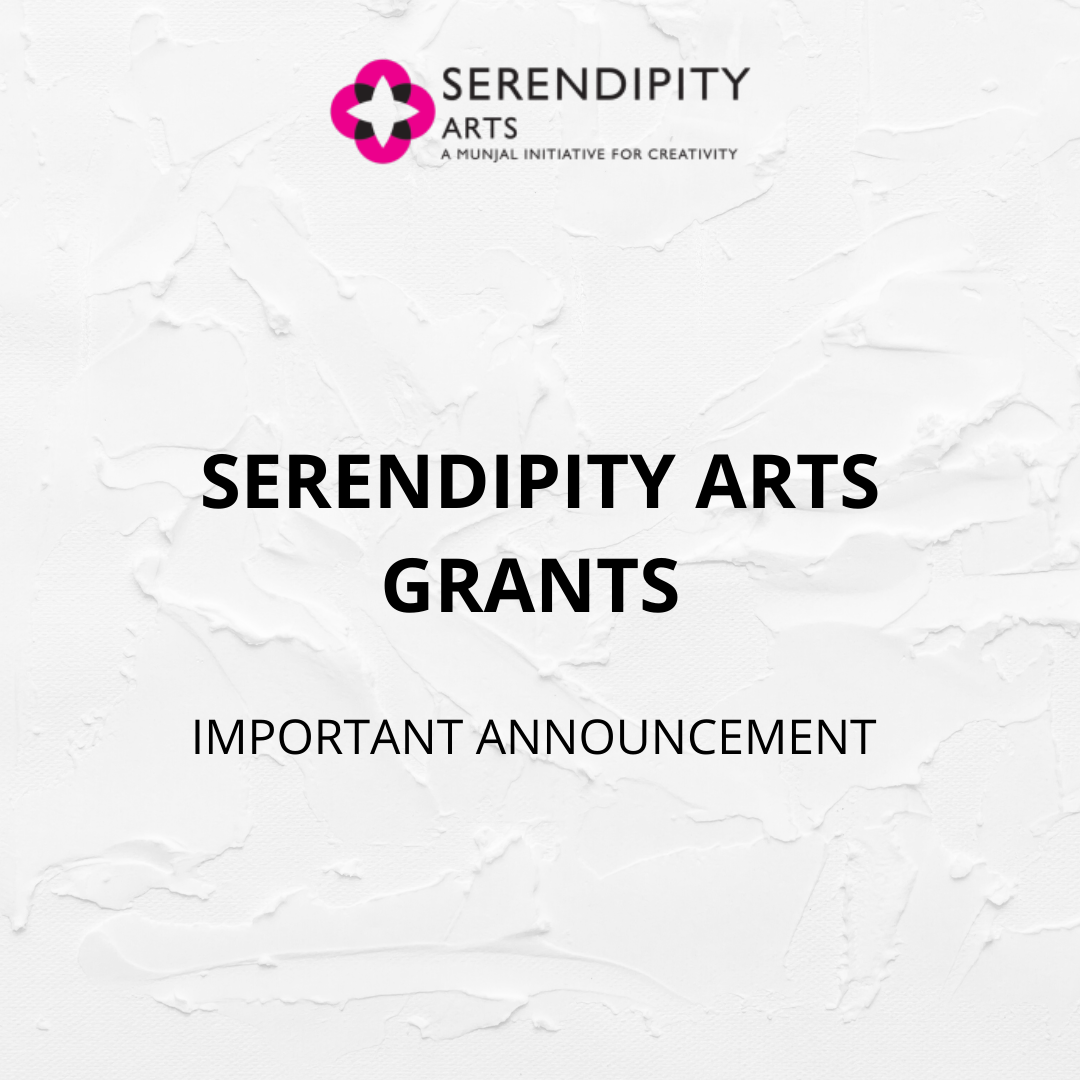
Owing to the rapidly evolving global situation due to COVID-19, we will be revising the criteria for applications and timelines as part of our grant scheme. Please stay tuned for more information and further announcements. Thank you.
Follow us on Instagram!
LOGIN to see more
To see all the content we have to offer, login below
OR
Don't have an account?
REGISTER FOR FREE
REGISTER FOR FREE
Registration is completely free, stay connected to Serendipity Arts

